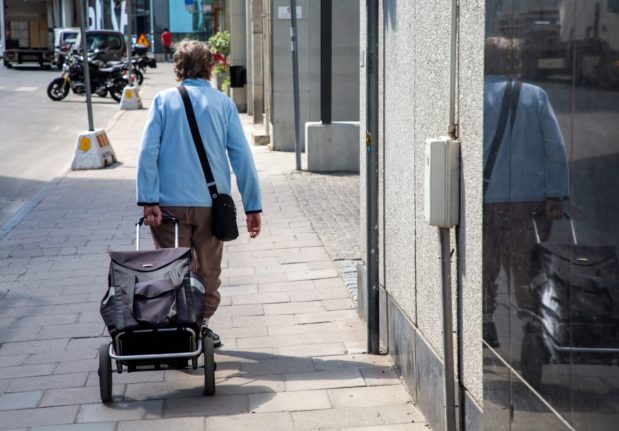According to EU Council data published on November 6th, the average life expectancy at birth in the EU region of Stockholm was 84.1 years. This is the longest in Scandinavia, which includes Sweden, Denmark and Norway, and almost the longest in the entire Nordics.
It compares to 83.2 years in Oslo, 82.3 years in Helsinki, 83.2 years in Iceland, and just 81.6 years in the Danish capital region.
The only region in Nordics with a longer life expectancy was Åland, the Swedish-speaking, semi-autonomous Finnish archipelago, where the average lifespan was 84.6 years.
The most short-lived region in Sweden was Central Norrland, with an average life expectancy of 82.2 years.
Across the EU as a whole, people in Stockholm enjoyed the eighth longest lifespans after Ticino, the southernmost region in Switzerland and the region around Lake Geneva (85.7 and 84.8 respectively), the Madrid, Navarre, and Castile and León regions in Spain (85.4, 84.8, 84.3), the region of Trento in Italy (84.2), and Åland.
Broadly speaking, the former Warsaw Pact countries had the lowest life expectancies, perhaps reflecting the fact that those who are elderly today were well into their 40s at the time of the fall of communism.
The average lifespan across the Baltic Sea in Latvia was just 68.2 years, a full 15 years less than people living in Stockholm.
How much longer do women live than men?
Sweden has the smallest gender gap after Norway when it comes to life expectancy, with women living 84.9 years to men's 81.3 years.
The difference in life expectancy was greatest in Stockholm, where women lived to 86 and men to 82.1, and lowest in West Sweden, where women lived to 84.9 and men to 81.5.
Across the Baltic in Latvia, the gender difference is more than twice as much, with women living nearly ten years longer on average than men – 78.0 years to 68.2 years respectively.
In Norway, the gender difference was the smallest out of all the countries in the EU/EFTA, with men living on average to 81.7 and women to 84.7.
What's behind the difference?
According to the OECD's Health at a Glance publication, out earlier in November, Swedes live relatively healthy lifestyles, with lower levels of smoking and drinking, higher exercise levels, and lower obesity than most other countries.
Swedes drink on average just 7.6 litres of alcohol a year, below the average of 8.6 litres per capita across the 38 OECD countries, and considerably less than the 10.4 litres per capita they put away on average in neighbouring Denmark.
Less than ten percent of Swedes over the age of 15 smoke every day, the lowest of any EU country in the study apart from Norway, and well below the 14 percent of Danes, and 12 percent of Finns, although more than the 8 percent of Norwegians.
The average diet in Sweden was also comparatively healthy, with 66 percent of people eating vegetables every day, compared to 46 percent of Danes and 67 percent of Norwegians.
When it comes to sport, 56 percent of Swedes do at least 150 minutes of physical exercise a week, compared to 40 percent of people across the OECD, and 55 percent of Danes. Norwegians were more active, with fully 68 percent doing more than 150 minutes of exercise a week.



 Please whitelist us to continue reading.
Please whitelist us to continue reading.
Member comments